Energy efficiency has become the main concern for households all across the country. In recent decades, we’ve become more aware of the need to conserve energy and produce appliances and other products that help save the environment while also helping to save money for the average household.
Becoming more energy-efficient starts with Energy Efficient Appliances, and being conscious of which of these Appliances and options are suitable for each individual’s needs should be prioritized. There are plenty of alternatives to traditional appliances and energy sources to help with energy conservation and to help stretch budgets.
Keep reading to learn more about the latest trends and options for conserving energy and making the most out of your budget. Energy conservation comes in many forms ranging from installing solar energy to using energy-efficient appliances.
Solar Panels
Solar panels are popping up everywhere across the country. People will realize that having solar panels installed on their routes will help them save money and further their efforts to be more eco-conscious.
Solar panels have a relatively high upfront cost; however, people who have certain circumstances may find they have impressive savings over the lifetime of their solar panels.
Several criteria[1] help the average homeowner determine if solar panels are the right choice for their home. Some of the requirements to think about include the following points.
- Location
- Amount of sun
- The direction of the roof
- Type of roof
- Energy bill
Not every home is a good candidate for solar panel installation, but it’s worth exploring the possibilities. When it comes to criteria, consider these highlights and factors.
You’ve probably noticed solar panels appearing in neighborhoods across the country already. More and more households are jumping on board to get savings for themselves and have a reliable and effective way to generate energy for their household needs.
Location
Where your home is located is essential for determining whether you should install solar panels on your roof. Solar panels need plenty of sunlight, which means if you live in a cloudy or rainy location, it’s not going to be very beneficial.
For example, if you live in the Pacific Northwest, you’d probably want to skip the idea of installing solar panels. In contrast, if you live in the southwest U.S. or the country’s Southeast, you’d probably be a good candidate. The southwest and Southeast get plenty of sunlight and have a less cloudy climate.
Amount of Sun
As previously mentioned, the amount of sun your home receives throughout the year is a critical factor in determining whether or not you should install solar panels. If you get anywhere from 60 to 75% clear conditions with direct sunlight throughout the year, you’d be an ideal candidate to install them.
The Direction of the Roof
One factor to consider is the direction of the roof. A west/east facing roof gets much more direct sunlight than a north/south-facing roof. If you have a north/south-facing roof, you won’t get enough sunlight to get the most efficiency from your solar panels.
Type of Roof
You’ll need to make sure your roof is strong enough to support solar panels. Ideally, you’ll want a shingle roof that’s in good condition or even a metal roof. If you have tiles or other specialty roofs, you may need to call a specialty contractor to install if the roof is suitable.
Energy Bill
If your energy bill is over $100 per month, you’ll likely want to consider purchasing solar panels. However, remember that you need to justify the initial cost and determine overall potential savings to get a clear picture of the value.
Energy Efficient Appliances
There are a wealth of energy-efficient appliances on the market today. They range from large appliances to small countertop style appliances. It’s best to check for an Energy Star[2] label or similar recognized listing when shopping for appliances. It means they use less energy and help keep costs and energy use down over their lifetime.
Air Conditioners
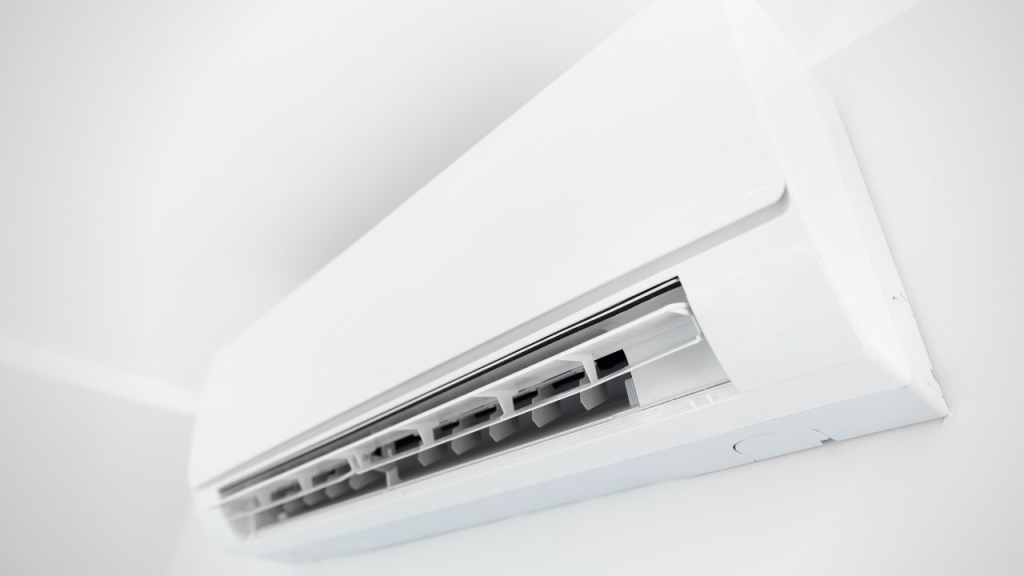
According to the U.S. Department of Energy, the best energy-efficient air conditioners[3] can be 30% to 50% more energy-efficient than predecessors.
That means when it’s time to replace your old air conditioner, looking for a model that’s certified to be energy efficient will save you tons of money over the next decade or more. Keep in mind that there are several types of air conditioning on the market today. Some options include the following.
- Room air conditioners
- Portable air conditions
- Central HVAC air conditions
There are also tax incentives for using energy-efficient appliances that you can apply for when you file your taxes at the beginning of the year if you bought one the previous year. Energy-efficient AC units also break down less and have a longer lifespan.
Stoves
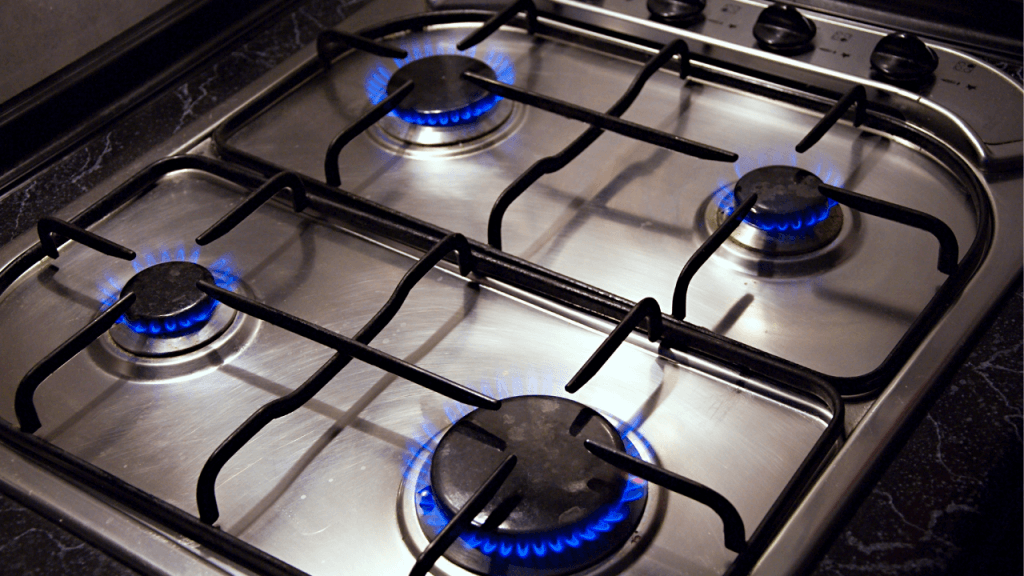
Most household appliances come in energy-efficient versions. The household stove is no exception. Technology has come a long way in the last few decades, and today’s energy-efficient stoves can do it all with less cost and reduced need for energy. The most efficient type of stove is the convection stove.
The oven portion is a convention-style cooking method that recirculates superheated air throughout the interior to cook food quicker and more evenly while using and losing less energy and heat.
To remain more energy efficient, try to get a gas stove with convection and consider an induction stove rather than traditional burners.
Clothes Dryers
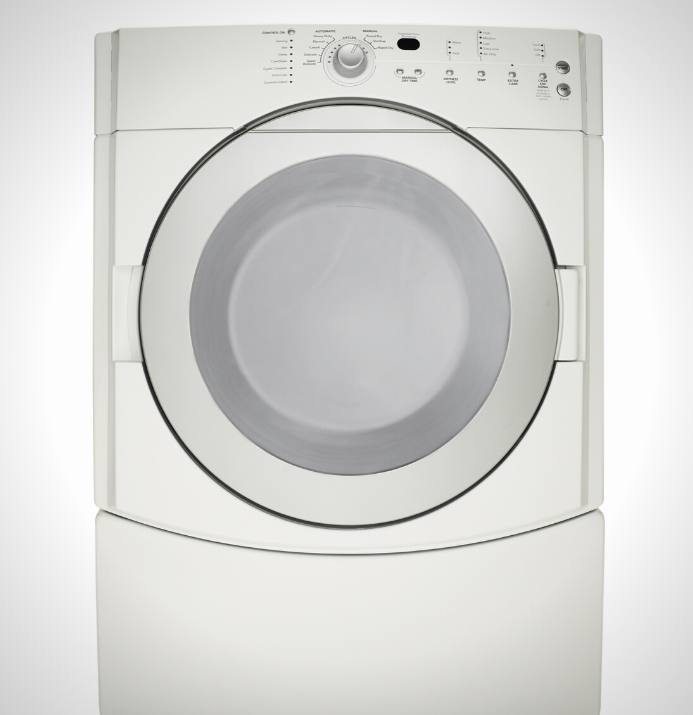
There are tons of dryers options; however, not all of them are energy efficient. Make sure you choose a model with the Energy Star emblem to ensure you’re getting the best efficiency and quality. There are two types of dryers to consider.
- Gas-powered
- Electric
You’d think the gas dryer is more efficient, but there’s not much difference when it comes to energy use.
The decision would come down to whether your home was set up for gas and if the gas was cheaper to use than the electricity. Remember that dryers use 3 to 4 times as much energy as a washing machine, so it’s essential to research each option to ensure you’re getting the best value and efficiency for your budget.
Try to select a model that senses when clothes are dry rather than using a timer. If your clothes dry ahead of the timer-shutoff, you’re wasting energy and defeating the purpose of energy-efficient dryers.
Water Heaters

Your home’s water heater[4] is the second-highest energy use item you own. It’s responsible for a good portion of your energy costs, which is why it’s so important to select an energy-efficient model. There are a few types to consider buying.
- Heat pump
- Tankless
- On-Demand
- Traditional
There are also benefits for each type to consider. To determine which model fits your needs, you should consider the size of your household and the overall water usage you have daily.
The most efficient for providing large quantities of water for large households is the environmentally friendly heat pump. This is a great way to get plenty of hot water for bathing and household chores without running out and running up the energy bill. They are also great for helping save the environment and produce incredible savings over their lifetime.
If you have a smaller household or a smaller home, you could choose on-demand water heaters. They are great for quick sources of hot water and only run when necessary. You can even unplug them when not in use. Most models fit securely in the bathroom and don’t take up much space.
Dishwasher
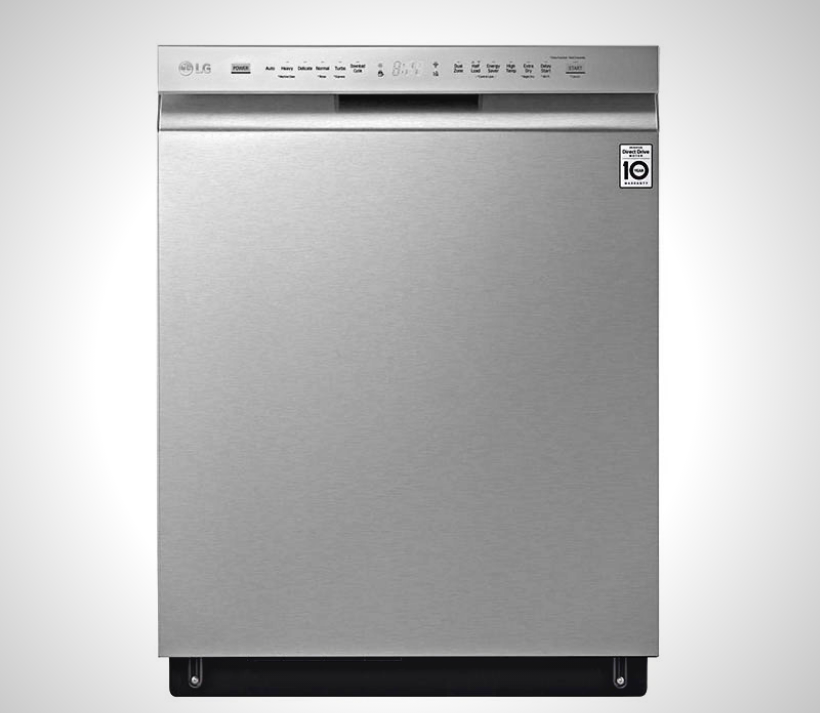
Dishwashers are much more energy-efficient than they were a few decades ago. The government has forced appliance manufacturers to make their products more efficient and help conserve energy and resources.
The average dishwasher uses about four to six gallons of water per load, which is a decent improvement. Although the water usage reduced, the time spent running load increased, so soil sensors were installed.
This helps focus energy only when needed and helps whittle downwash times to ensure a clean cycle. Some tips for using less power with a dishwasher include the following.
- Run a full load
- Avoid pre-rinse
- Skip running the dishwasher if possible
If you only have a few dishes, you can save energy by hand-washing them and letting them air dry. You can also wait until you have a full load to run the cycle to conserve water and energy.
Washing Machines

Energy-efficient washing machines can cut costs of energy use[5] by 50%. The motor spins much more efficiently to get the job done and spins the water out of clothes, so they dry faster and get cleaner.
The average savings on your bill is up to 33% when you purchase an energy-efficient washing machine. Keep in mind that the average home runs approximately 300 cycles per year.
The washing machine accounts for about 13% of your energy bill each month, so it makes sense to choose a model that can provide the best savings and get the job done better.
Freezers
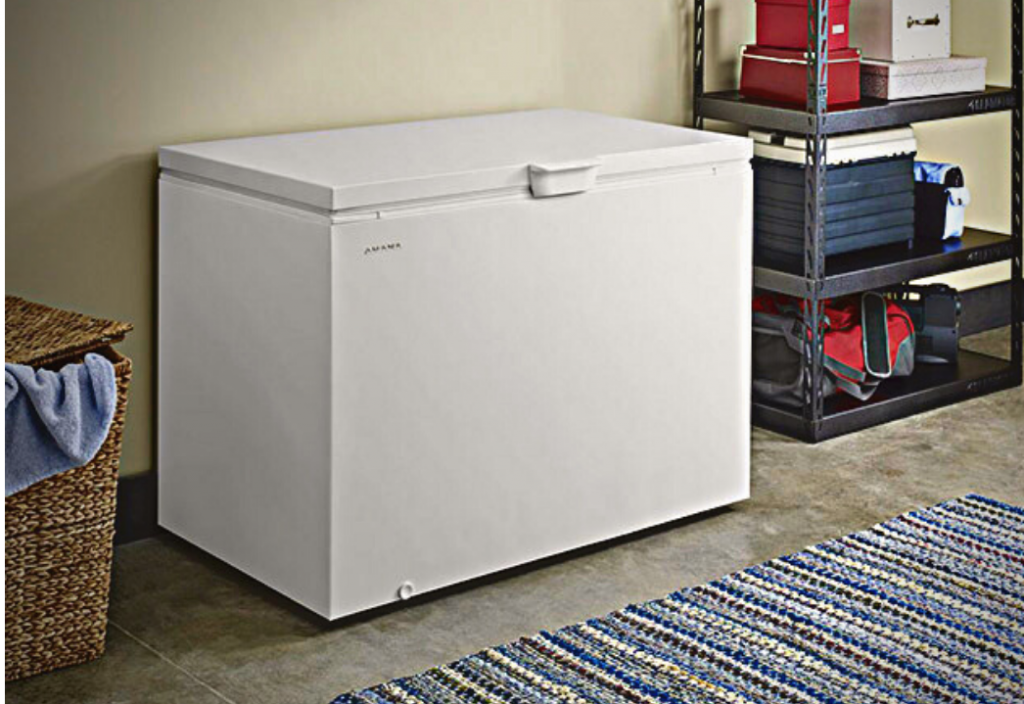
Freezers that are energy efficient save about 10% more on your power bill and help prevent freezer burn off your food. If you’re into saving money and like to freeze foods for value, buying one that’s more energy-efficient only makes sense. There are two types to choose from on the market today.
- Upright freezer
- Chest freezer
They both work very well; however, the stand-up version tends to cost more and has more bins and sections. However, both save money and do a good job storing food when you decide you’re ready to eat it.
Air Purifiers
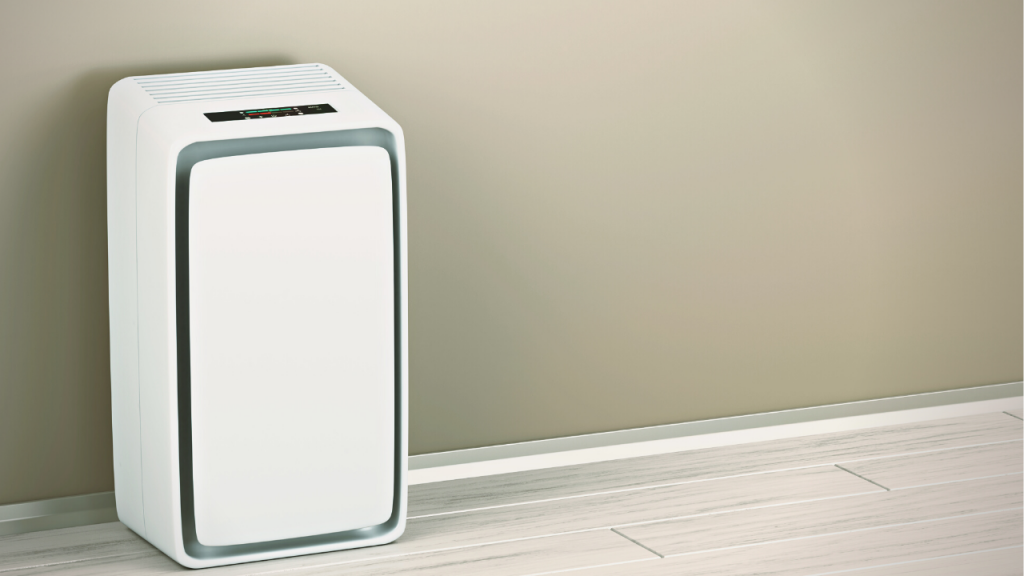
If you have issues with keeping the air clean in your home, you might need an air purifier or two. The best way to save money is to make sure that you get energy-efficient models that do a good job but don’t run up your energy bill.
These purifiers can remove smoke, dander, dust, allergens, and more. They are accommodating for people with certain conditions and illnesses such as asthma and allergies. You can purchase a whole-home purifier anchored to your HVAC system and treat the air pulled into the HVAC unit.
They remove over 90% of the pathogens in a home and make the air cleaner and healthier for all who live there. These cleaners are now available in an energy-efficient model purchased from certain HVAC specialists across the country. It’s worth the investment to breathe easier and save money on your energy bill simultaneously.
Why Buy Energy Efficient Appliances if They Cost More?
There are many benefits to selecting energy-efficient appliances[6]. Some mentioned earlier are designed to save money on energy costs. But one significant factor is the impact on the environment. When the term energy efficient is used, the appliance uses less environmentally impacting fuels and resources. To produce energy, oil, gas, coal, and water are necessary for most applications.
They are all-natural resources, and using them for energy production has a significant impact on the environment. The oil industry alone is the largest industry responsible for creating gas and oil for industrial and individual users worldwide.
Although this type of energy is necessary for society to function currently, it still has an incredible impact on the world we live in today. The process of finding and drilling for oil and gas contributes to pollution and impacts ecosystems directly.
That’s why each person needs to do their part to conserve resources and make the most out of their current energy use. Today’s energy-efficient appliances use less energy to operate and provide the increased capability. These appliances work better, last longer, and need fewer repairs.
You might pay more for them upfront, but you get much better quality and performance that allows you to save money over time on repairs, replacements, and energy bills.
Considerations for Purchasing Energy Efficient Appliances
If you plan to upgrade to energy-efficient appliances, you should consider a few points first. If you currently have appliances and function well, you want to make another unnecessary purchase.
However, if your appliances work poorly, break frequently, and cost way too much to operate, it may be time to upgrade.
Refrigerator/Freezer
If you have a refrigerator that is not keeping a constant temperature and consistently produces ice on your food or allows it to warm up to unsafe temperatures.
In that case, that’s likely an indicator that it’s an excellent time to search for an Energy Star refrigerator that keeps your food to a safe, even temperature so you don’t have to worry. This action can also prevent the inevitable breakdown and potentially lose hundreds of food in your refrigerator and freezer.
HVAC and Room Units
This is one of the most significant purchases you make for your home when it comes to your HVAC unit. Take some time to research the benefits of certain units to decide which is the most energy-efficient and suitable for the home.
You may want a room to room heating and cooling, which is easy to achieve with energy-efficient heaters and AC units. However, if you have a central HVAC unit or heat pump, you’ll have considerably more investment but better efficiency, especially for larger homes.
Washer and Dryers
When you’re looking for a washer and dryer, either individually or together, always look for the Energy Star to help you get the best product and more savings over time.
Eventually, the upfront cost of these two appliances will be less than the savings over their lifetime. You’ll have fewer maintenance calls and better performance to get clothes cleaner.
Solar Panels
Not every home needs or is a good candidate for solar panels. However, if you feel it may be beneficial for your situation, in that case, it’s a solid investment that helps save dramatically on energy costs and can even increase the value of your home.
Before deciding to make a purchase, consult with an expert, get an estimate for the installation, and determine if your roof can support the panels without problems.
Summary
Using energy-efficient appliances and products helps reduce energy needs for the country and reduce pollution and prevent waste. The goal is to have every household equipped with energy-efficient appliances at some point.
This action will positively impact current energy needs and create a noticeable difference for the environment and each household’s energy needs and costs.
Consider purchasing these items if you want to save money, help preserve the environment, and get better performance out of your appliances.
Even if you don’t think solar panels are ideal for your household, you can still commit to buying energy-efficient appliances. However, it’s up to each household to choose a more energy-efficient appliance, so even though it’s tempting to choose a cheaper brand, it’s not likely worth the investment in the long run.
You’ll probably end up replacing the appliance sooner and have to spend extra money on service calls and more. Keep this information in mind each time you shop for new appliances, either large or small.

